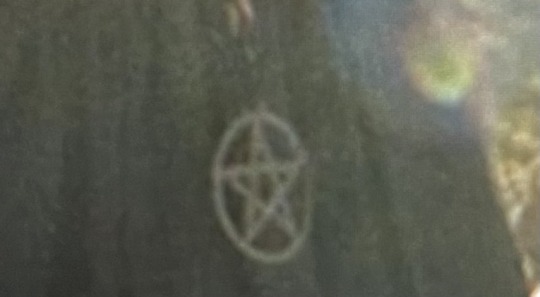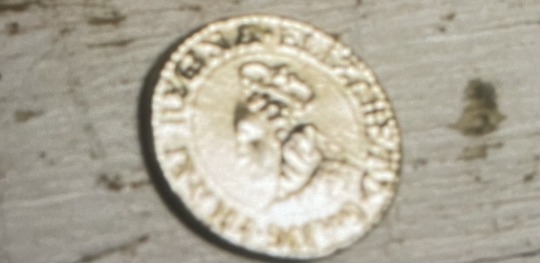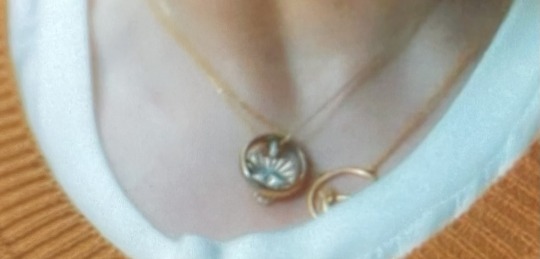#reasons for the Biblical command not to rail against the devil?
Explore tagged Tumblr posts
Text
Refined by Fire
annndddd we are back folks with the Death of one Agnes Nutter

Awhile ago @justhereforthemeta made this post about Agnes having some parallels to Jesus which is what really got the wheels turning in my brain in the first place and well now here we are
but just to recap-
Check out part 1 for a list of all her prophecies that we know of and all the artwork I could find referenced in her book
In part 2 we started to dive into where she was getting her prophecies from through some clues left in her book and on her work bench
but now we are going to look into the events surrounding her death
There is something poetic about the last true witch in England and all her prophetic work going up in flames. Even moreso that Agnes Nutter knew her fate and yet she still went out on her own explosive terms
But let's just start with the basics
Fire

Biblically speaking fire is seen as a symbol of God's presence and a tool for their judgement - to either purify or destroy
But generally speaking it is a symbol of transformation, purification, and rebirth
Pentacle

Now something interesting Agnes wears to her death - other than roofing nails and gunpowder - is a pentacle. From my understanding the main difference between a pentacle and pentagram is just the circle on the outside
At their core pentacles - no matter the symbol on the inside - are objects of evocation. Heinrich Cornelius Agrippa summarized there use as,
“fore-know all future, and command whole nature, have power over devils, and Angels, and do miracles”
Going back a bit to the actual symbol on the inside - the pentagram was actually an early symbol for the five wounds of Jesus represented by the five points. This was a symbol of the church and could be used as a symbol of protection against demons and witches
Now it wasn't really until the 1800’s that this symbol started to be associated with the more modern interputation with witchcraft and even then it was only associated with “evil” when inverted.
There is a long history with this symbol with tons of different meanings - from the body of man to the elements with a common theme of mind over matter - but at the time of Agnes’s death, 1656, it had not yet been associated as a symbol of witchcraft as far as I am aware but I’m willing to accept that maybe it was just an oversight or that I’m reading too far into it as it really is just a small detail.
Offering

A burnt one to be exact - now just hear me out I know we are going off the rails a bit
Yes burnt offerings are laid out to only be certain animals but there are instances of human ones as well - Jephthah’s daughter for example and well, Jesus.
Not that the show skips out on the animal burnt offering just look to the Job minisode plenty of examples there - the goats supposedly destroyed in the explosions only for them to be transformed and the whole ass ox upon the altar - but anyway
Jesus’s sacrifice on the Cross is seen as like the Ultimate Burnt Offering apparently. Burnt offerings were typically used as a way to atone for wrongdoings, to show appreciation and a way to appease God - the act of completing giving oneself over to God.
But because Jesus died on the Cross people no longer had to atone. With the burnt offering Jesus accomplishes the Will of God - completely consumed and ascended to God - he restores humanity relationship with God.
So upon the altar that they willingly went to, they were tied. For they knew the reason of their death and called out,
Father, please. You have to forgive them. They don’t know what they are doing
And let my death be a message to the world. Come. Come, gather thee close I say, and mark ye well the fate of those who meddle with such as they do not understand.
Those around them are unaware of the consequences of their actions - one begs for their forgiveness, the other cast judgement onto them.
Agnes does not take her fate of going out quietly. If her death is be an offering, of the start of the end - well what better way to go than with a bang
All her neighbors that she helped heal had all turned on her and called for her death - so she gave them their judgement through explosion and roofing nails
Her village got a completely new start with her death - a chance to be better

also fun fact the Hebrew word for "burnt offering" actually means to “ascend” mainly referring to the smoke that would rise and the smell would appease God
Gold

but Agnes’s story hardly ends with her death - No her work lives on but we aren’t here to talk about her prophecies but rather something she gives in return for keeping them safe
Gold Coins
she leaves a letter each for the two men we see having to keep track of the box containing the further prophecies and when those letters are opened out drops a gold coin
They each have a different reaction to the gold coin - one acknowledges it and then continues on to his letter the other reads letter first and then scrambles to grab the coin and leave.
Now gold in general is a symbol of God’s glory and is associated with a divine presence. It can also represent material and spiritual wealth.
but it’s probably worth mentioning The Parable of the Ten Gold Coins yeah?
In this Jesus tells of a nobleman that gives one coin each to ten servants and tells them to use it while he is gone and when he gets back the first one had turned his one coin into ten, the second had turned his into five, and the third hid his in fear of losing it. The first two are praised and rewarded while the third is punished.
The message from this is that of how people are to use the gifts given to them in order to produce results for the Kingdom of God whenever it comes around. People are to use their gifts wisely, responsibility, and productively.
Now remember those two men from earlier - one using the coin and predictions to build a successful law firm and the other almost seems like a punishment? Where is our first/middle man? The Device family? I would say so
Originally I thought this was a lesson of greed but this seemed to fit slightly more. Also way to hammer in that you are a divine presence Agnes with the gold
Agnes has rigged her Wheel of Fate and I hope she is raising some hell up in Heaven - she certainly succeeded on Earth
————————————————————————
and that’s a wrap on her death. Join in next time for the finale where we will dive into the legacy left behind - family, masonry, ……and what’s up with Maggie?

#good omens#good omens 2#good omens meta#good omens analysis#good omens theory#the nice and accurate prophecies of agnes nutter#agnes nutter#should I have waited to post this not at four in the morning?#probably#hopefully things are explained well enough
24 notes
·
View notes
Text
Reasons For the Biblical Command to NOT Rail Against the Devil?
Reasons For the Biblical Command to NOT Rail Against the Devil?

RAILING AGAINST THE DEVIL: Scripture says Don’t do it. Pay attention to God’s Word.
“Yet Michael the archangel, when contending with the devil he disputed about the body of Moses, durst not bring against him a railing accusation, but said, The Lord rebuke thee. But these speak evil of those things which they know not: but what they know naturally, as brute beasts, in those things they corrupt…
View On WordPress
0 notes
Text
Is abortion the only pro-life issue?

Is abortion the only pro-life issue? This isn't the first time I've written about abortion. Or about other issues that should be of concern to Christians. But it hit me during a conversation earlier today. Why is it that so many Christians make abortion the litmus test - seemingly the only pro-life issue for Christians? It makes no sense to me. None at all. Is abortion the only pro-life issue? is article #1 in the series: Abortion vs Pro-life Issues Series. Click button to view titles for entire series Is abortion a pro-life issue?

Well, yes, abortion is a pro-life issue. But is it the only pro-life issue? We'll go through the abortion part of what I believe pro-life should be about. In quite a bit of detail. Not from the medical side. Nothing gory. Also nothing on when a fetus has a so-called moment where it becomes a living person. Instead, this is strictly a Biblical viewpoint of both the woman (or girl) having the abortion. And also the Christian whose primary goal is to stop the abortion from taking place. If a woman has an abortion, obviously there will be no living baby as a result of the pregnancy. I leave it to your conscience - something between you and whatever "god" you believe in. For the Christian reader though - this is between you and Jesus. So, assuming that most Christians consider this to be killing, murder, ending a potential life, whatever you'd like to call it - you most likely do consider abortion to be a sin. But what about that sin? Will Jesus forgive a woman for having an abortion? With apologies to some Catholics who think the answer is no - sorry but the Biblical answer is yes. No, the Bible doesn't say that anywhere. You won't find the word abortion in the Bible. However, consider a couple passages. Is abortion murder First of all, if you think abortion is murder, which most Christians probably do, then what about when Jesus said: Is considering abortion the same as murder? Guess what? Remember this part of what Jesus said? 22 But I tell you that anyone who is angry with his brother will be subject to judgment. Again, anyone who says to his brother, ‘Raca,’ is answerable to the Sanhedrin. But anyone who says, ‘You fool!’ will be in danger of the fire of hell. Sure, we remember the murder part. Most of us have never murdered anyone. But how many of us can say honestly, to God, that we've never done the other things? We'd all better hope Jesus forgives every one of those things. Also consider this passage. For the Catholic readers, I have something following the passage to more clearly define the difference between mortal and venial sins. Can someone who had an abortion be forgiven? There's a lot of good stuff in that passage, but for this topic, notice: Mt 12:31 And so I tell you, every sin and blasphemy will be forgiven men, but the blasphemy against the Spirit will not be forgiven. 32 Anyone who speaks a word against the Son of Man will be forgiven, but anyone who speaks against the Holy Spirit will not be forgiven, either in this age or in the age to come. Every sin will be forgiven, except one - blasphemy against the Holy Spirit. The Greek word for blaspheme that Matthew wrote is: 988 βλασφημία n f. From 989; TDNT 1:621; TDNTA 107; GK 1060; 19 occurrences; AV translates as “blasphemy” 16 times, “railing” twice, and “evil speaking” once. 1 slander, detraction, speech injurious, to another’s good name. 2 impious and reproachful speech injurious to divine majesty. Strong, J. (1995). Enhanced Strong’s Lexicon. Woodside Bible Fellowship. So let's remember that, and also look at something Paul wrote. Living as Children of Light Eph 4:17 So I tell you this, and insist on it in the Lord, that you must no longer live as the Gentiles do, in the futility of their thinking. 18 They are darkened in their understanding and separated from the life of God because of the ignorance that is in them due to the hardening of their hearts. 19 Having lost all sensitivity, they have given themselves over to sensuality so as to indulge in every kind of impurity, with a continual lust for more. Eph 4:20 You, however, did not come to know Christ that way. 21 Surely you heard of him and were taught in him in accordance with the truth that is in Jesus. 22 You were taught, with regard to your former way of life, to put off your old self, which is being corrupted by its deceitful desires; 23 to be made new in the attitude of your minds; 24 and to put on the new self, created to be like God in true righteousness and holiness. Eph 4:25 Therefore each of you must put off falsehood and speak truthfully to his neighbor, for we are all members of one body. 26 “In your anger do not sin” : Do not let the sun go down while you are still angry, 27 and do not give the devil a foothold. 28 He who has been stealing must steal no longer, but must work, doing something useful with his own hands, that he may have something to share with those in need. Eph 4:29 Do not let any unwholesome talk come out of your mouths, but only what is helpful for building others up according to their needs, that it may benefit those who listen. 30 And do not grieve the Holy Spirit of God, with whom you were sealed for the day of redemption. 31 Get rid of all bitterness, rage and anger, brawling and slander, along with every form of malice. 32 Be kind and compassionate to one another, forgiving each other, just as in Christ God forgave you. Eph 5:1 Be imitators of God, therefore, as dearly loved children 2 and live a life of love, just as Christ loved us and gave himself up for us as a fragrant offering and sacrifice to God. ... Are there other sins committed in the abortion / anti-abortion process? Once again, there's a lot in that passage - and I even left off the last portion since it wasn't needed for context. However, notice this paragraph: Eph 4:29 Do not let any unwholesome talk come out of your mouths, but only what is helpful for building others up according to their needs, that it may benefit those who listen. 30 And do not grieve the Holy Spirit of God, with whom you were sealed for the day of redemption. 31 Get rid of all bitterness, rage and anger, brawling and slander, along with every form of malice. 32 Be kind and compassionate to one another, forgiving each other, just as in Christ God forgave you. Paul wrote: do not grieve the Holy Spirit of God. In his book The Forgotten God, Francis Chan views this as refusing the promptings of the Holy Spirit too many times. Not like there's an absolute number, but when it gets to the point where the routine normal thing to do is saying no to God. I really like the book - and I agree that saying no too often would grieve the Holy Spirit. Keep in mind that we are to be disciples of Jesus, followers. And that the Holy Spirit, as Paul also writes, is the mind of Christ. Therefore, continuously saying no to the Holy Spirit amounts to essentially refusing to follow Jesus. That leads to a conclusion about the relationship between the two passages we just looked at - one by Jesus and one by Paul. But let's look at the Greek word that we read as "grieve". 3076 λυπέω v. From 3077; TDNT 4:313; TDNTA 540; GK 3382; 26 occurrences; AV translates as “be sorrowful” six times, “grieve” six times, “make sorry” six times, “be sorry” three times, “sorrow” three times, “cause grief” once, and “be in heaviness” once. 1 to make sorrowful. 2 to affect with sadness, cause grief, to throw into sorrow. 3 to grieve, offend. 4 to make one uneasy, cause him a scruple. Strong, J. (1995). Enhanced Strong’s Lexicon. Woodside Bible Fellowship. So - if we compare the two passages, and the two Greek words (not necessarily the current meaning of the English words) - it seems reasonable that grieve the Holy Spirit is at least part of blaspheming against the Holy Spirit. Frequently saying "no!" to Jesus seems to fit under evil speaking. Seems like it to me, anyway. Next, for the Catholic readers. You may think that mortal sins are not forgiven. The excerpt below is from the second edition of The Catechism of the Catholic Church. IV. THE GRAVITY OF SIN: MORTAL AND VENIAL SIN 1854 Sins are rightly evaluated according to their gravity. The distinction between mortal and venial sin, already evident in Scripture, became part of the tradition of the Church. It is corroborated by human experience. 1855 Mortal sin destroys charity in the heart of man by a grave violation of God's law; it turns man away from God, who is his ultimate end and his beatitude, by preferring an inferior good to him. Venial sin allows charity to subsist, even though it offends and wounds it. 1856 Mortal sin, by attacking the vital principle within us - that is, charity - necessitates a new initiative of God's mercy and a conversion of heart which is normally accomplished within the setting of the sacrament of reconciliation: When the will sets itself upon something that is of its nature incompatible with the charity that orients man toward his ultimate end, then the sin is mortal by its very object . . . whether it contradicts the love of God, such as blasphemy or perjury, or the love of neighbor, such as homicide or adultery. . . . But when the sinner's will is set upon something that of its nature involves a disorder, but is not opposed to the love of God and neighbor, such as thoughtless chatter or immoderate laughter and the like, such sins are venial. 1857 For a sin to be mortal, three conditions must together be met: "Mortal sin is sin whose object is grave matter and which is also committed with full knowledge and deliberate consent." 1858 Grave matter is specified by the Ten Commandments, corresponding to the answer of Jesus to the rich young man: "Do not kill, Do not commit adultery, Do not steal, Do not bear false witness, Do not defraud, Honor your father and your mother." The gravity of sins is more or less great: murder is graver than theft. One must also take into account who is wronged: violence against parents is in itself graver than violence against a stranger. 1859 Mortal sin requires full knowledge and complete consent. It presupposes knowledge of the sinful character of the act, of its opposition to God's law. It also implies a consent sufficiently deliberate to be a personal choice. Feigned ignorance and hardness of heart do not diminish, but rather increase, the voluntary character of a sin. 1860 Unintentional ignorance can diminish or even remove the imputability of a grave offense. But no one is deemed to be ignorant of the principles of the moral law, which are written in the conscience of every man. The promptings of feelings and passions can also diminish the voluntary and free character of the offense, as can external pressures or pathological disorders. Sin committed through malice, by deliberate choice of evil, is the gravest. 1861 Mortal sin is a radical possibility of human freedom, as is love itself. It results in the loss of charity and the privation of sanctifying grace, that is, of the state of grace. If it is not redeemed by repentance and God's forgiveness, it causes exclusion from Christ's kingdom and the eternal death of hell, for our freedom has the power to make choices for ever, with no turning back. However, although we can judge that an act is in itself a grave offense, we must entrust judgment of persons to the justice and mercy of God. 1862 One commits venial sin when, in a less serious matter, he does not observe the standard prescribed by the moral law, or when he disobeys the moral law in a grave matter, but without full knowledge or without complete consent. 1863 Venial sin weakens charity; it manifests a disordered affection for created goods; it impedes the soul's progress in the exercise of the virtues and the practice of the moral good; it merits temporal punishment. Deliberate and unrepented venial sin disposes us little by little to commit mortal sin. However venial sin does not break the covenant with God. With God's grace it is humanly reparable. "Venial sin does not deprive the sinner of sanctifying grace, friendship with God, charity, and consequently eternal happiness." While he is in the flesh, man cannot help but have at least some light sins. But do not despise these sins which we call "light": if you take them for light when you weigh them, tremble when you count them. A number of light objects makes a great mass; a number of drops fills a river; a number of grains makes a heap. What then is our hope? Above all, confession. 1864 "Therefore I tell you, every sin and blasphemy will be forgiven men, but the blasphemy against the Spirit will not be forgiven." There are no limits to the mercy of God, but anyone who deliberately refuses to accept his mercy by repenting, rejects the forgiveness of his sins and the salvation offered by the Holy Spirit. Such hardness of heart can lead to final impenitence and eternal loss. Now, having said all that, notice #1864, at the end of it all. 1864 "Therefore I tell you, every sin and blasphemy will be forgiven men, but the blasphemy against the Spirit will not be forgiven." There are no limits to the mercy of God, but anyone who deliberately refuses to accept his mercy by repenting, rejects the forgiveness of his sins and the salvation offered by the Holy Spirit. Such hardness of heart can lead to final impenitence and eternal loss. What is the real unforgivable sin in Catholicism? The Catholic Catechism uses the same verse as I did, from the passage we looked at, titled Murder in the NIV. The very same one. And if you read the intent of the Catechism, rather than getting stuck on what we might think it says, the result is exactly what I pointed out earlier. There is one - repeat one - unforgivable sin. The mortal sins talked about in the Catholic church are the ones that lead us to a point of saying "no!" to the Holy Spirit. Saying "no!" to Jesus. It's not any one, two, or any other absolute limiting number of "mortal" sins that's unforgivable. Rather, the unforgivable thing is when we start saying "no!" to the Holy Spirit without even a second thought. Finally. I also want to point out what the Catechism says about venial sins. Deliberate and unrepented venial sin disposes us little by little to commit mortal sin. However venial sin does not break the covenant with God. With God's grace it is humanly reparable. "Venial sin does not deprive the sinner of sanctifying grace, friendship with God, charity, and consequently eternal happiness." Venial sin, in and of itself, isn't something that will separate us from God. However, they can have the effect of leading us to think they're pretty much nothing to worry about. We just commit them, time after time after time ... Next thing you know, we're on to bigger and worse things. Then we end up saying "no!" more and more often. Sound familiar? It's about the condition of our hearts, not about the actual sin. Why isn't it about the sin? Simple, it's because every sin is forgivable, except blasphemy against the Holy Spirit. Period. What about the deadly sins? I have to say, this has been a good refresher for me. Having left the Catholic Church many, many years ago, it's hard to remember all the gory details of something I no longer follow. Anyway, here's the thing on those so-called deadly sins, from Christianity.com. The seven deadly sins, as identified by Pope Gregory 1 in the late sixth century, are considered categories of sin: pride, envy, wrath, gluttony, lust, sloth, and greed. Many think the deadly seven are recorded in the Bible. Surprisingly, even though each of the seven is a sin, this list is not contained in Scripture. The history of the sin categorization began in the year 400. Evargius Ponticus a fourth century monk, described eight evils to resist. Two centuries later Pope Gregory 1, refined the inventory to seven. Almost every sin can be placed in one of these seven categories. Isaiah 14:13-14 tells us pride and selfishness are related to each of the seven and are viewed as the root causes of all sin. The Christianity site also addresses the question of whether these "deadly" sins can be forgiven. Yes, God can forgive all sins. No sin is greater or more deadly than another (Romans 6:23). There are some sins that bear more earthly consequences than others. For instance, murder has larger consequences than sinful anger. No matter the sin, the eternal consequences are the same— a separation from a holy God. But no sin too big or too bad that God cannot forgive (1 John 1:9). Rather than make you look them up, here are the referenced verses, with the entire passage for context. Slaves to Righteousness Ro 6:15 What then? Shall we sin because we are not under law but under grace? By no means! 16 Don’t you know that when you offer yourselves to someone to obey him as slaves, you are slaves to the one whom you obey—whether you are slaves to sin, which leads to death, or to obedience, which leads to righteousness? 17 But thanks be to God that, though you used to be slaves to sin, you wholeheartedly obeyed the form of teaching to which you were entrusted. 18 You have been set free from sin and have become slaves to righteousness. Ro 6:19 I put this in human terms because you are weak in your natural selves. Just as you used to offer the parts of your body in slavery to impurity and to ever-increasing wickedness, so now offer them in slavery to righteousness leading to holiness. 20 When you were slaves to sin, you were free from the control of righteousness. 21 What benefit did you reap at that time from the things you are now ashamed of? Those things result in death! 22 But now that you have been set free from sin and have become slaves to God, the benefit you reap leads to holiness, and the result is eternal life. 23 For the wages of sin is death, but the gift of God is eternal life in Christ Jesus our Lord. Again, the specific verse is the last one: 23 For the wages of sin is death, but the gift of God is eternal life in Christ Jesus our Lord. The wages of sin is death. Ultimately, my question is going to be about who is / are the sinner(s) in this whole abortion process - whether one actually happens or not. What's the difference between actually having an abortion versus considering one? In that light, let's also not forget what Jesus said about thinking something evil versus actually doing it. So adultery isn't really any different from looking at a woman the wrong way. In that light, is having an abortion any different from seriously considering having one? You may think, what's the big deal? Surely the woman who actually had an abortion is worse than the one who didn't. However, Jesus says that's not true. Both have the same impact. If anyone who looks at a woman lustfully has already committed adultery with her in his heart then it only seems reasonable that anyone who seriously considers having an abortion has already had an abortion in their heart. And if that's the case, what has been accomplished by preventing the abortion? Some Christians might feel better about themselves for having prevented one, but isn't the "heart" of the problem long before the abortion actually takes place? Hold that thought as we continue. Here's the other passage referenced in the excerpt about the deadly sins. The full passage is even longer, but I've kept enough of it go give context to what John is saying. Remember - the quoted verse is 1Jn 1:9. Walking in the Light 1Jn 1:5 This is the message we have heard from him and declare to you: God is light; in him there is no darkness at all. 6 If we claim to have fellowship with him yet walk in the darkness, we lie and do not live by the truth. 7 But if we walk in the light, as he is in the light, we have fellowship with one another, and the blood of Jesus, his Son, purifies us from all sin. 1Jn 1:8 If we claim to be without sin, we deceive ourselves and the truth is not in us. 9 If we confess our sins, he is faithful and just and will forgive us our sins and purify us from all unrighteousness. 10 If we claim we have not sinned, we make him out to be a liar and his word has no place in our lives. 1Jn 2:1 My dear children, I write this to you so that you will not sin. But if anybody does sin, we have one who speaks to the Father in our defense—Jesus Christ, the Righteous One. 2 He is the atoning sacrifice for our sins, and not only for ours but also for the sins of the whole world. 1Jn 2:3 We know that we have come to know him if we obey his commands. 4 The man who says, “I know him,” but does not do what he commands is a liar, and the truth is not in him. 5 But if anyone obeys his word, God’s love is truly made complete in him. This is how we know we are in him: 6 Whoever claims to live in him must walk as Jesus did. 1Jn 2:7 Dear friends, I am not writing you a new command but an old one, which you have had since the beginning. This old command is the message you have heard. 8 Yet I am writing you a new command; its truth is seen in him and you, because the darkness is passing and the true light is already shining. 1Jn 2:9 Anyone who claims to be in the light but hates his brother is still in the darkness. 10 Whoever loves his brother lives in the light, and there is nothing in him to make him stumble. 11 But whoever hates his brother is in the darkness and walks around in the darkness; he does not know where he is going, because the darkness has blinded him. ... Are there unconfessed sins in the abortion / anti-abortion process? In light of what we've seen, and of what's coming next, pay attention to that verse: 9 If we confess our sins, he is faithful and just and will forgive us our sins and purify us from all unrighteousness. My question will be - who has sinned in the process of having an abortion? And just as importantly, in the ways that Christians often act in the process of trying to prevent an abortion? And while we're at it - after the abortion? Or even after an abortion doesn't take place? Food for thought. Some of those will be addressed later in this series. I said at the very beginning that we'd look at two things in here. ... this is strictly a Biblical viewpoint of both the woman (or girl) having the abortion. And also the Christian whose primary goal is to stop the abortion from taking place. So after all this, what about the Christian whose primary goal is to stop the abortion? If that's you, I have a question for you. By now, you know I consider abortion to be a sin. You also know that I believe the Bible says even considering having an abortion is a sin. And that the penalties for either one - considering an abortion and actually having one - are the same? I wrote a little about that in If you stop abortion – so what? I'll be going into greater detail later in this series. Just want to get my viewpoint up front right away. Before I ask that question. Because the question is - do you think there's any sin involved in preventing an abortion and then walking away? Depending on the statistics you read, it seems that about half of the pregnancies are done by unwed mothers. About 3/4ths of the total number of abortions are for poor people. Based on the numbers, many of those unwed mothers are, therefore, also poor. Conclusion - Is abortion the only pro-life issue? Now, consider something Jesus said. I don't want you to get lost in the weeds here, but there's something about when Jesus said that you may not be aware of. It's not obvious in the English translation. You probably think it only says not to prevent the little children from coming to Jesus. In the Greek, it actually says we should help them. If we think about that for a moment - it actually makes more sense that we should help them. Of course, where it gets really messy is when we consider who is the "child". Of course, in my discussion - it's not the fetus / baby. It's the mother. The mother who wants to follow Jesus - but is in a place where she doesn't know what to do. She's not married. She's too poor to support a baby. And she can't work two or three part-time low paying jobs and still take care of her baby. She doesn't know what to do. She doesn't really want to have an abortion. But doesn't know what else to do, because the Christians are screaming at her to not have the abortion. But then if she has the baby, she also knows those many of those same Christians have, under the name of their political party, made it pretty much impossible for her to support the child. And, few of them will offer any kind of help. Tell me. Who all sinned in that scenario? We'll get into the answers to that question in the next part of this series on abortion. Image by Clker-Free-Vector-Images from Pixabay Read the full article
#abortion#Bible#Christ#Christian#Christianity#fear#forgiven#forgiveness#forgiving#God#Jesus#love#mercy#pro-life#religion#sin
0 notes
Text
End Times Prophecy Headlines: October 5, 2020
End Times Prophecy Headlines: October 5, 2020
End Times Prophecy Report HEADLINES MONDAY October 5, 2020


And OPINION
“And Jesus answered and said unto them, Take heed that no man deceive you.” —Matthew 24:4
===INTERNATIONAL
ASIA: Nagorno-Karabakh conflict: Armenia ‘ready’ for ceasefire talks
ASIA: Official at Center of Armenia, Azerbaijan Conflict Calls It Fight to Death
RUSSIA: Putin says Donald Trump’s ‘inherent vitality’ will see him…
View On WordPress
#a discussion#America&039;s modern warfare#angels and demons#occultism in the churches#reasons for the Biblical command not to rail against the devil?#rock and roll: a sountrack for rebellion#the G&039;s of end times preparation#the serpent&039;s other lie#Trump&039;s wall
0 notes